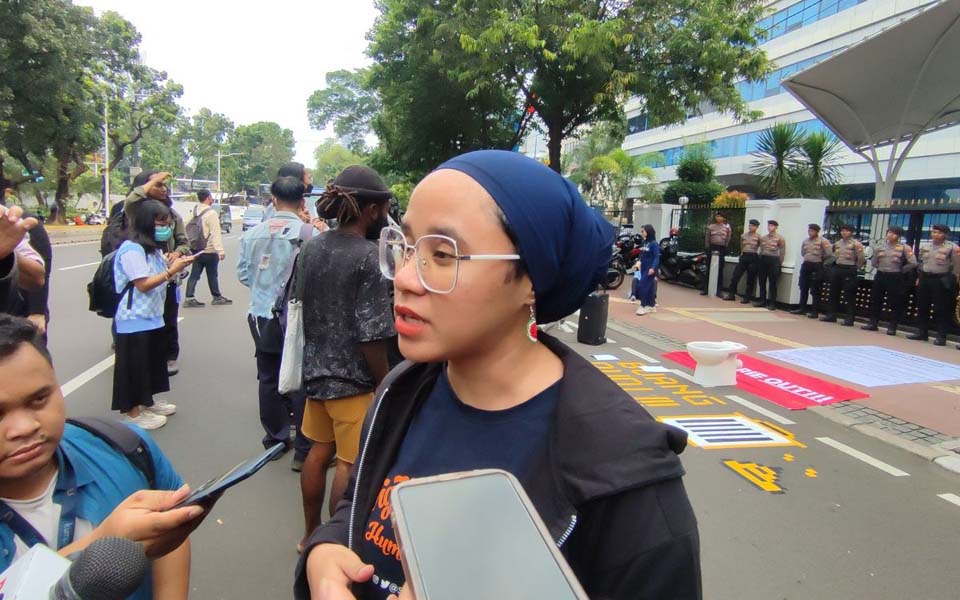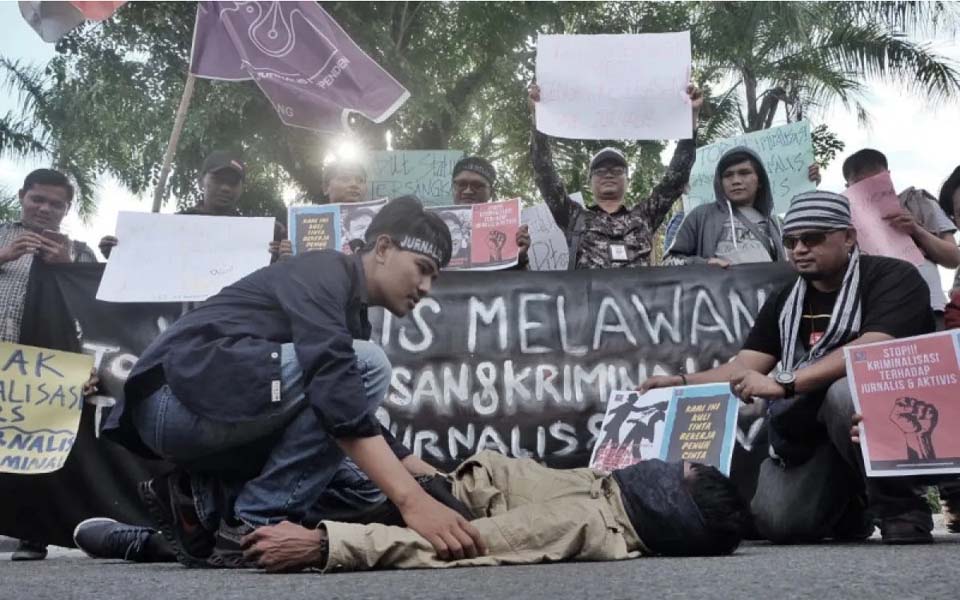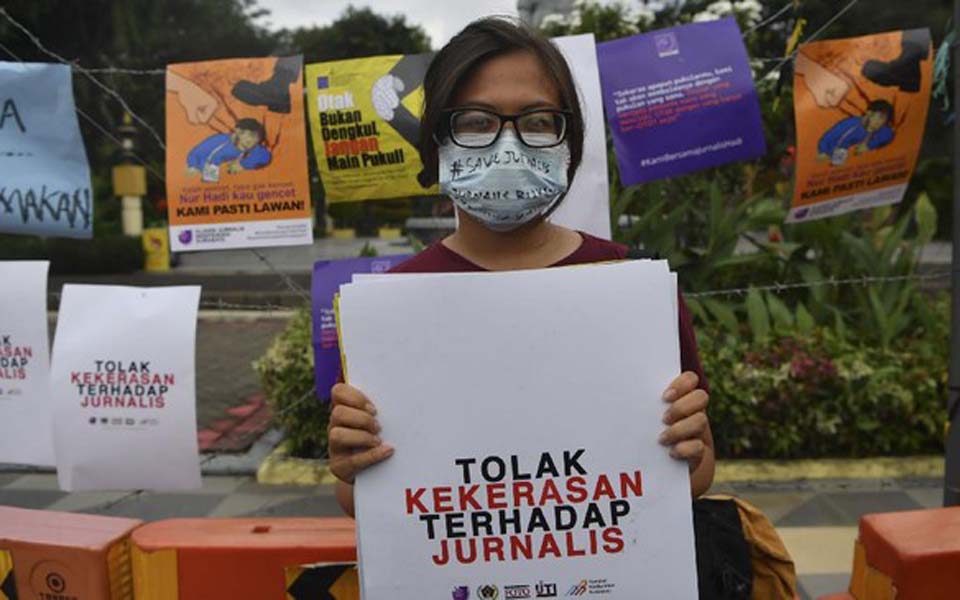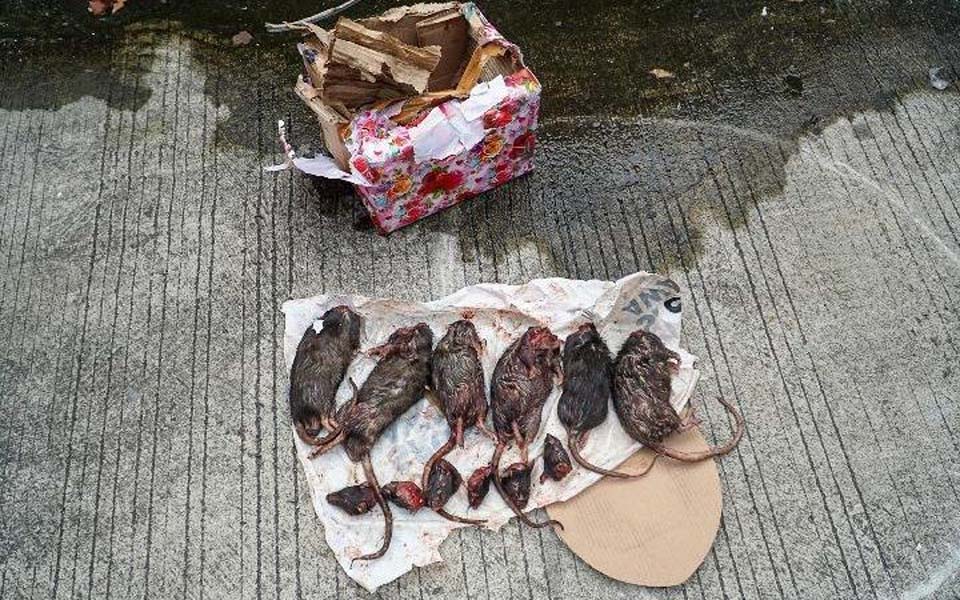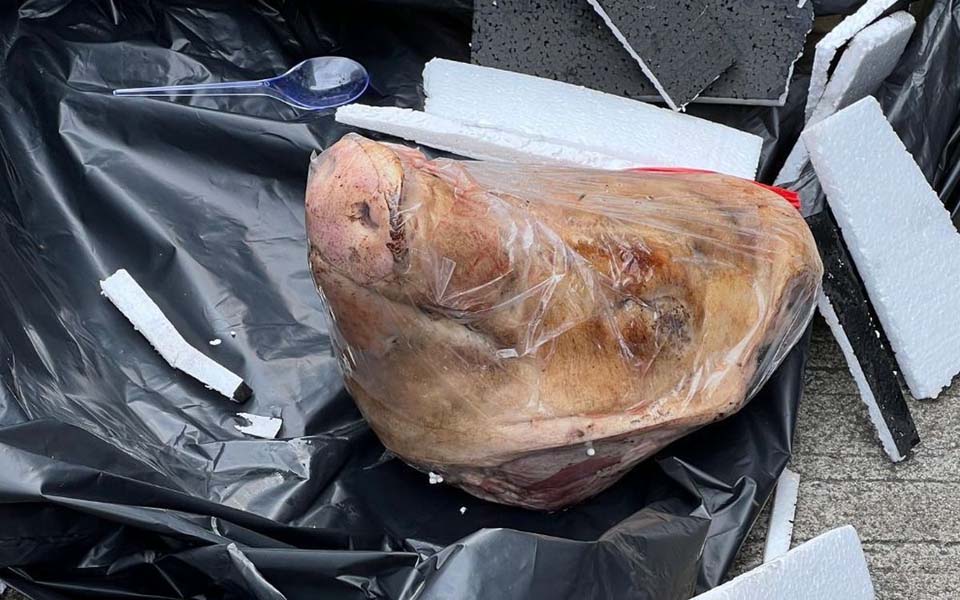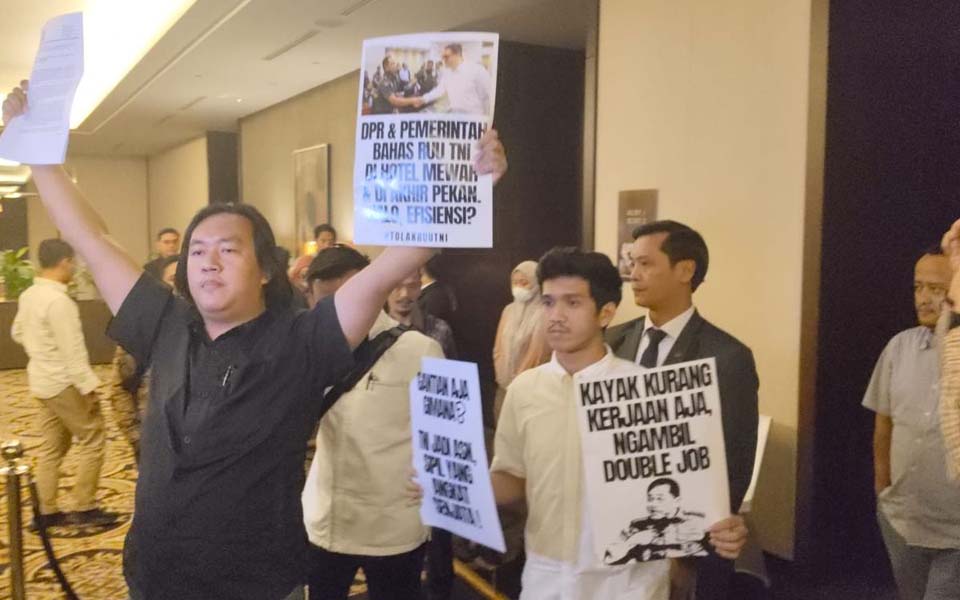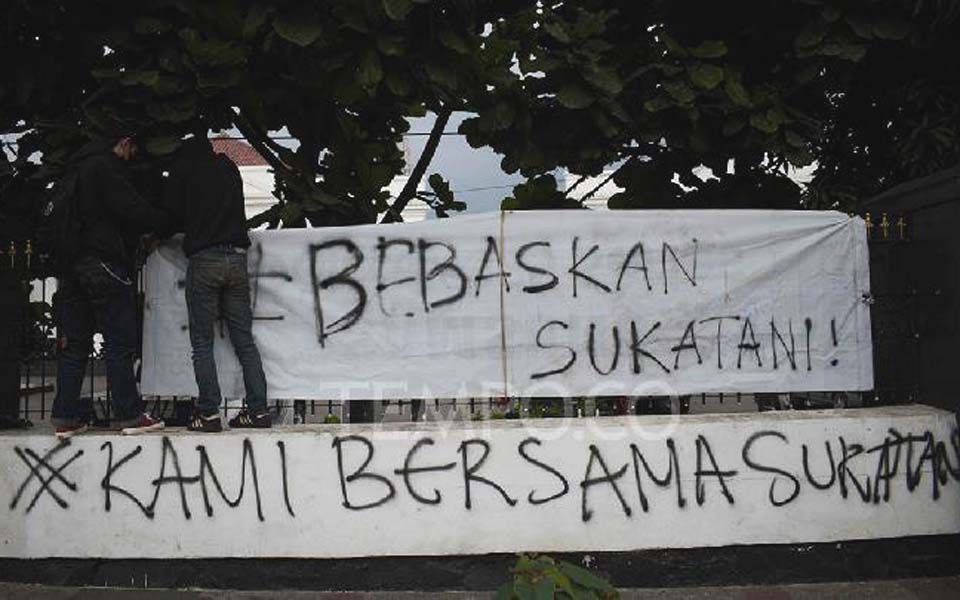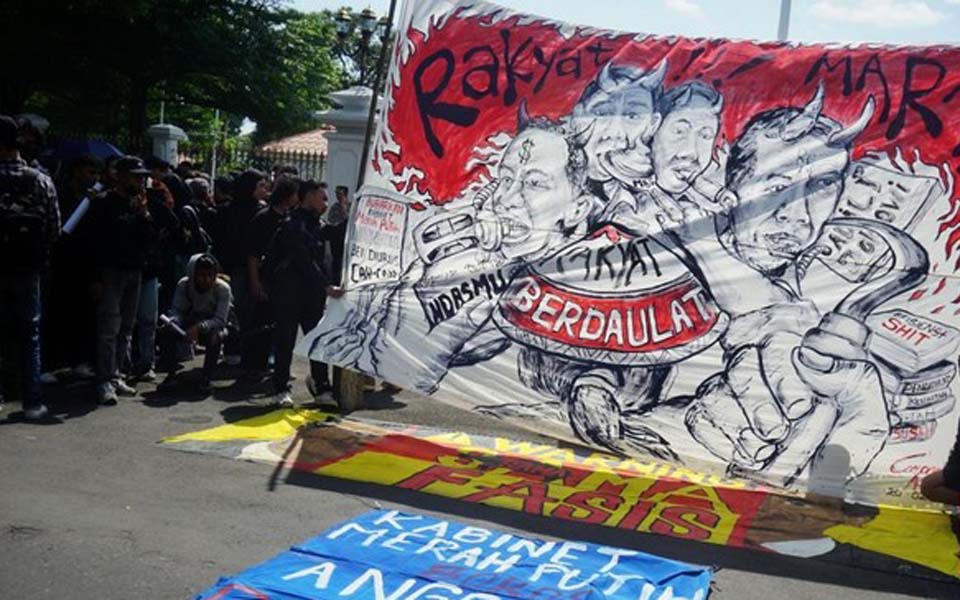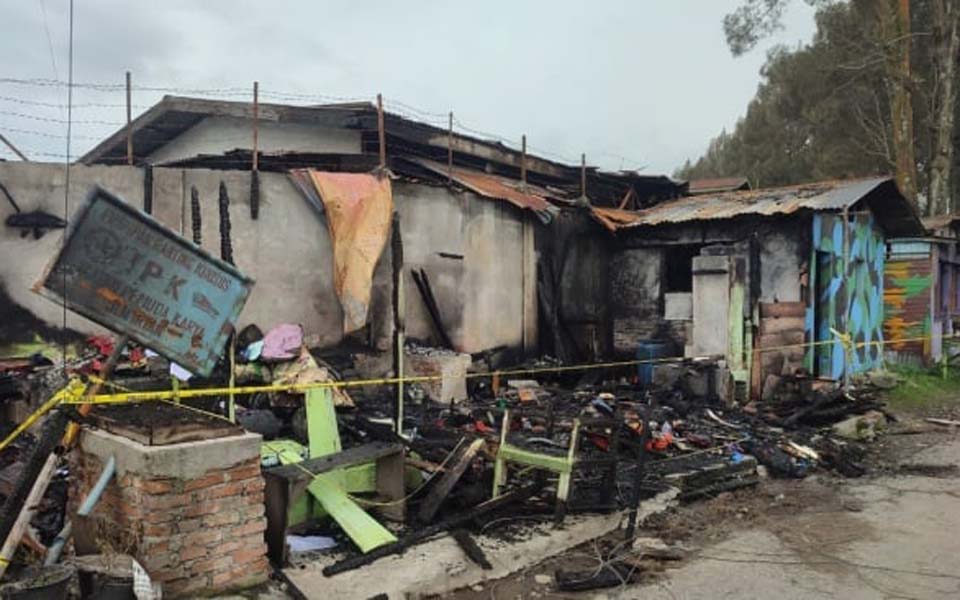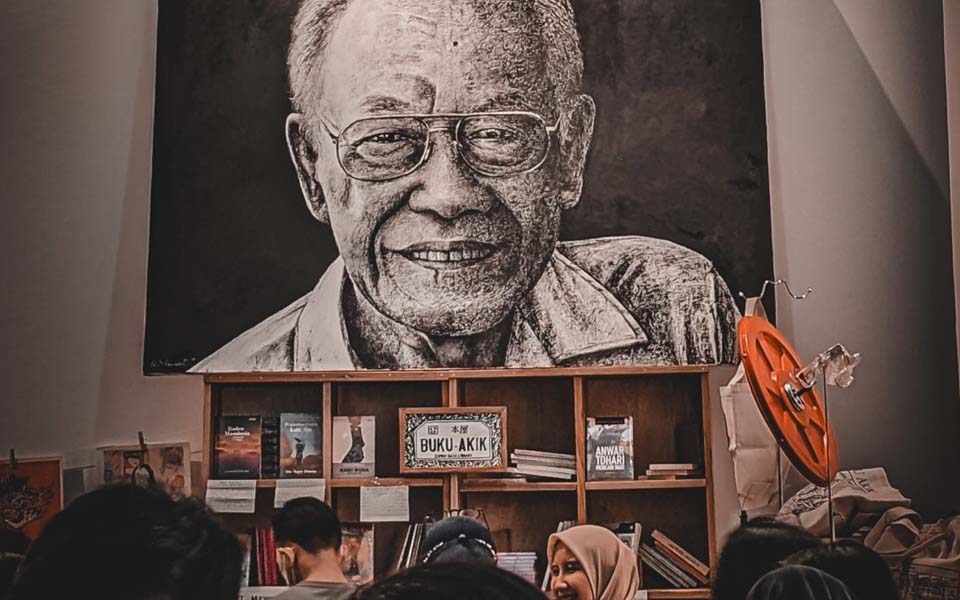Eva Mazrieva, Washington DC – In mid-April Reporters Without Borders (RSF) released its annual report and world press freedom index. Surprisingly, Indonesia was still in 124th place meaning press freedom has stagnated and there has been absolutely no progress since 2018.
“President Joko Widodo has not kept his campaign promise. His presidency has been marred by serious violations of press freedom”, and this is reflected in “restrictions on media access to report in Papua”, read the report.
RSF cited the case of the deportation of BBC journalists Rebecca Alice Henschke and Heyder Affan in February when they were covering a humanitarian story in Papua, but did not go into further details.
When contacted by phone, Alliance of Independent Journalists (AJI) Chairperson Abdul Manan conceded that “it is still difficult for foreign journalists to gain access to Papua and this is evidence that the president has yet to fulfill his public pledge [to open media access to Papua] and this is a bad mark for Indonesia in the eyes of the community of international press organisations”.
Manan added, “For RSF and the international community, the issue of foreign journalists’ access to Papua is a pledge that will continue to be sought. Jokowi [Widodo] made this pledge publically in 2017”.
Cendrawasih XVII Regional Military Command (Kodam) public information chief Infantry Colonel Muhammad Aidi refutes this. “Indonesia, including Papua, has never been closed to anyone, as long as they follow the procedures prevailing in the NKRI (Unitary State of the Republic of Indonesia – Ed.)”, he said when contacted by VOA.
“This is the case in all sovereign countries around the world. All sovereign countries do of course have procedures, regulations and laws which must be complied with if you want to enter the country”, added Aidi.
Aidi gave as an example the restrictions on entry into the United States which were applied to former TNI (Indonesian military) chief General Gatot Nurmantyo in October 2017.
Aidi also cited the good relationship which Indonesia has established between foreign journalists who have entered Papua with ease because they followed the correct procedures.
“We often help National Geographic, CNN, Aljazeera, NHK [World Radio Japan], AFP [Agence France Presse] and so forth, how much content on Papua have they already carried? This is evidence that the foreign media is free to report on Papua”, asserted Aidi.
Draconian IET and blasphemy laws
Aside from criticism over the restrictions on foreign journalists reporting in Papua, RSF also cited the Information and Electronic Transaction (UU ITE) law and the Blasphemy Law as legislation which threatens press freedom. Manan also concedes this point.
“The UU ITE is in fact the main one which provides a chilling effect on journalists. Because this UU can easily be used by anyone who doesn’t like journalists. By posting something on medsos [social media], including articles, this alone can be an entry point to make an issue about it legally. Never mind the harassment and threats against journalists and the media who write stories about hard-line Islamic figures such as the FPI [Islamic Defenders Front]. This is also a threat in itself because they can become victims of online persecution. This has become a new type of threat for journalists amid the growing strength of right-wing groups in Indonesia”, said Manan.
According to a report by the volunteer based Southeast Asia Freedom of Expression Network SAFEnet, between 2008-2018 there were 245 reports of people who were indicted under the UU ITE, including attempts to prosecute 14 journalists and seven media outlets. Manan is calling on all journalist organisations to monitor the issue seriously.
“Of course we can hope that the government will voluntarily do this. [But] the government’s basic disposition is to tend to dislike press freedom. Because of this journalist organisations need to become fierce monitors of the government, seriously push the government to have a better commitment to supporting press freedom. The opportunities to push for policy reforms exist. Such as the case of remission for the killer of Prabangsa early this year for example. Jokowi eventually revoked the decision to give him a sentence remission after protests against the policy, which were supported by AJI, and spread to every corner [of the country]”, he added.
Widodo cancelled a sentence remission for Susrama – the mastermind and perpetrator of the murder of Radar Bali journalist Anak Agung Narendra Prabangsa – after the move was strongly criticised by journalists and human rights activists.
Widodo’s decision to revoke the remission was made to coincide with National Press Day on February 9. Earlier Susrama’s sentence was to be reduced from a life sentence to 20 years in jail.
Need for more women journalists
Commission on Violence Against Women (Komnas Perempuan) Commissioner Sri Nurherwati meanwhile highlighted the need to increase the number of women journalists in order to join the fight for women’s issues.
“It’s very important to have a sufficient number of women journalists to develop opinion. If reports that appear always conform with public opinion which doesn’t yet understand the problem of patriarchy, then no education takes place in society. The sources who are interviewed in fact ‘mess up’ this education. The mandate of Article 5 of the CEDAW [Committee for the Convention on Elimination of all forms of Discrimination Against Women] to change the pattern of thinking and discriminative behaviour towards women and men can be achieved if there is continuous education. The media is one of the strategies for this”, said Nurherwati.
According to Manan, Widodo could play a role in supporting press freedom if he is reelected for a second term in office.
“This is Jokowi’s second and final term. He must be able to work better, select ministers from professional circles rather than the [political] parties, and present a more supportive stand on press freedom. He doesn’t have an electoral burden anymore because he can’t run for a third term. This should make Jokowi freer to implement progressive policies to create a better legacy”, he said in conclusion. (em/al)
[Translated by James Balowski. The original title of the article was “Hari Kebebasan Pers Internasional: Pers Indonesia Jalan di Tempat?”.]






